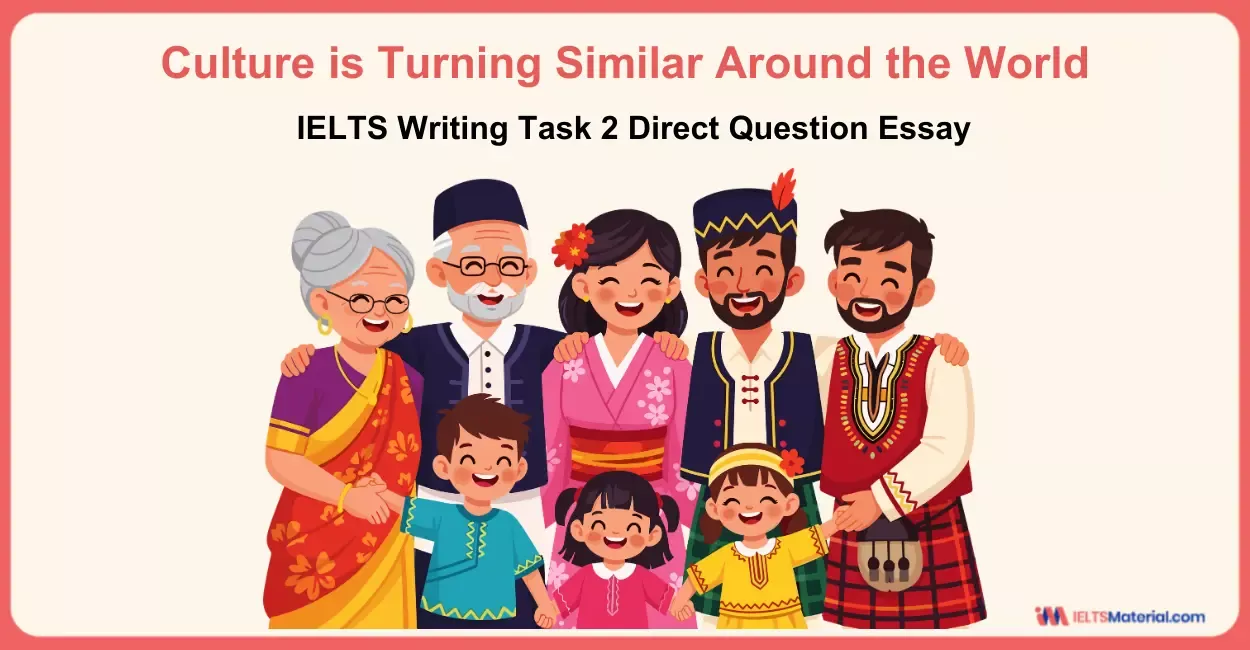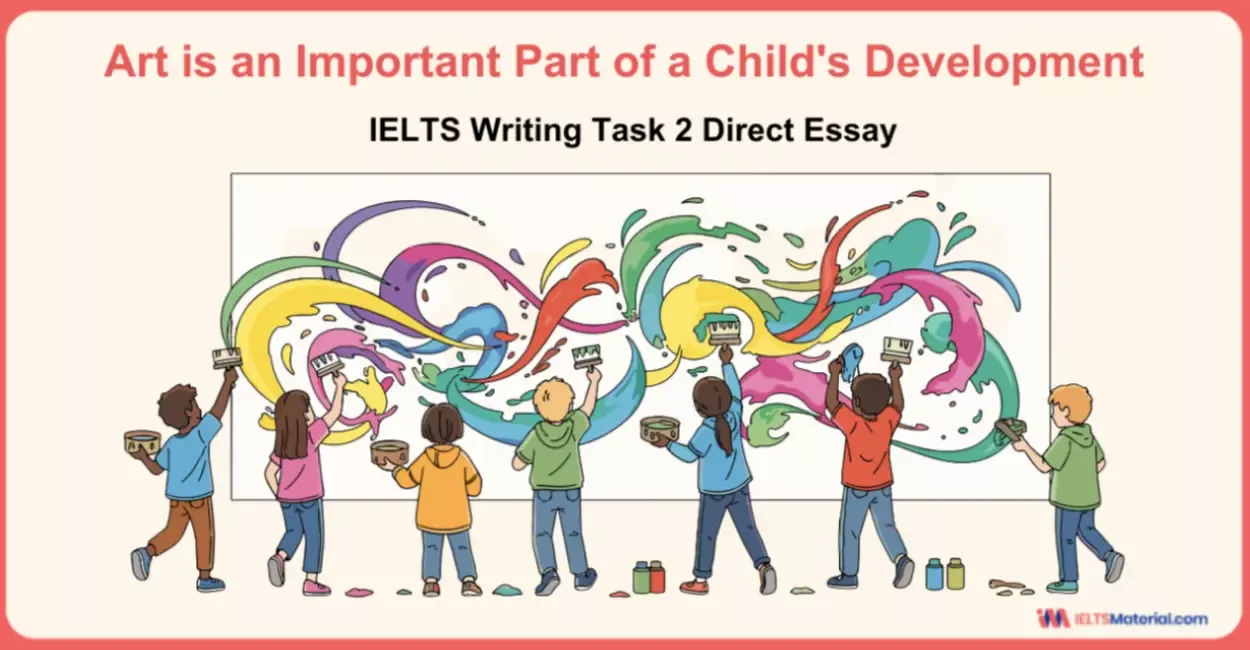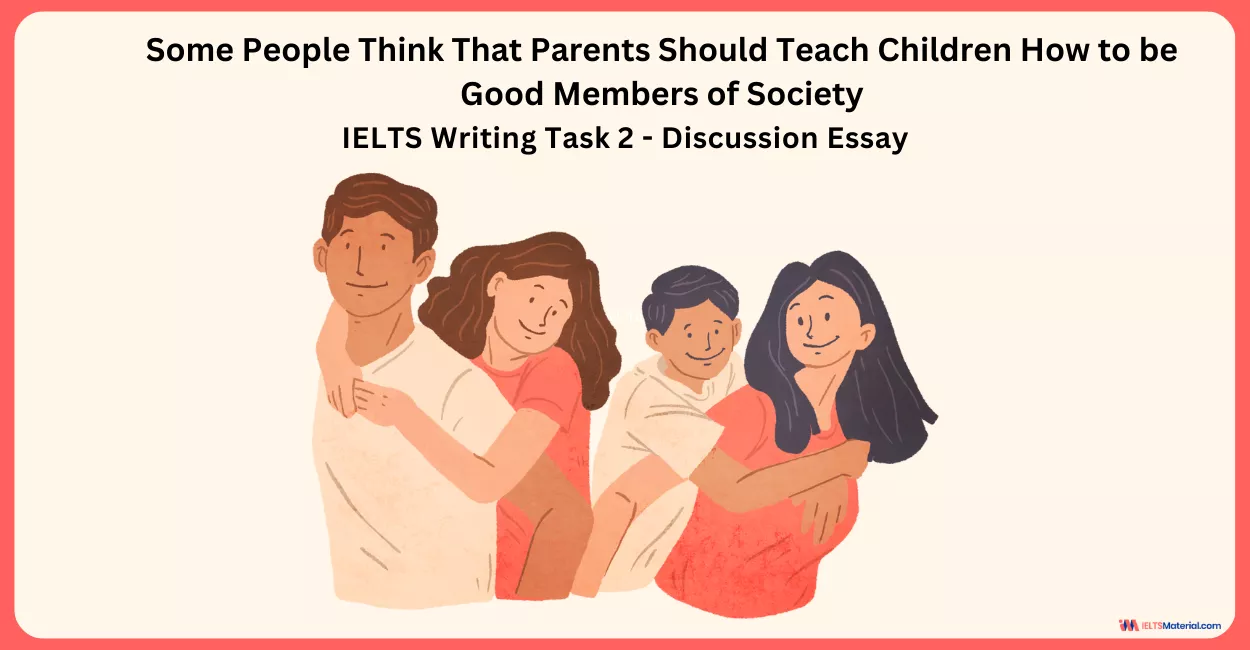Parents Often Give Children Everything They Ask For – IELTS Writing Task 2
10 min read
Updated On
-
Copy link
Level up your IELTS Writing preparation with the topic, 'Parents Often Give Children Everything They Ask For – IELTS Writing Task 2' along with band 7, 8, and 9 Sample answers, strategies, and vocabulary words to achieve a band 8+.
Table of Contents
- Band 8+ Tricks to Attempt Topic on Parents Often Give Children Everything They Ask For – IELTS Writing Task 2
- Structure Breakdown - Parents Often Give Children Everything They Ask For – IELTS Writing Task 2
- Band 7 Sample Answer - Parents Often Give Children Everything They Ask For – IELTS Writing Task 2
- Band 8 Sample Answer - Parents Often Give Children Everything They Ask For – IELTS Writing Task 2
- Band 9 Sample Answer - Parents Often Give Children Everything They Ask For – IELTS Writing Task 2
- Parents Often Give Children Everything They Ask For And Do What They Like - IELTS Vocabulary

Try AI Essay Checker for Instant Band Score
In the IELTS Writing Task 2, a direct question essay requires you to answer one or more specific questions clearly and directly. These essays often explore social, moral, or behavioral issues and test your ability to provide balanced arguments for the topic like 'Parents Often Give Children Everything They Ask For – IELTS Writing Task 2'. In this form of essay, you have to answer the direct question where you must elaborate the reasons and back them up with appropriate reasons and examples.
By going through the strategies as well as the sample answers on the topic, 'Parents Often Give Children Everything They Ask For – IELTS Writing Task 2', you will be able to level up your preparation for the IELTS Direct Question Essay. It is also ideal to brainstorm and create a structure breakdown of the ideas on this topic before diving into the three sample answers of Band 7, 8 and 9. In this way, you can note the areas of improvement and also understand the tricks to ace this type of writing task 2 question.
So, why wait? Let's check it out now!
Connect with our IELTS Experts to crack your IELTS Writing and ace the exam with a band 8+! Book a Free Demo
Band 8+ Tricks to Attempt Topic on Parents Often Give Children Everything They Ask For – IELTS Writing Task 2
To score a higher IELTS Band Score, certain strategies must be followed in enhancing your organization skills while you attempt to brainstorm ideas and use precise vocabulary. If you prepare with these tips and strategies, you will be able to get a higher band by developing skills needed to perform well at the exam. Prepare yourself for the exam by looking at the following tricks as you attempt the topic, 'Parents Often Give Children Everything They Ask For – IELTS Writing Task 2'.
- It is suggested that you should plan the essay be keeping a 5 minute time frame with a logical structure before writing. Planning or structuring helps immensely in order to maintain clarity and the logical flow of ideas in your writing.
- You must acquire the knowledge of the Timing and Word Length in IELTS Writing Module so that you become comfortable with the exam format. You will be able to attempt the given question appropriately within the given time frame. However, keep a tab on the timer during practice which will help you grow familiar with test conditions.
- As you state the reasons for the direct questions, remember to further elaborate them rather than just mentioning too many of them. This will affect your band score in the parameter of task achievement and coherence and cohesion.
- Use more complex sentences in your essay and prepare yourself with key topics from IELTS Grammar for scoring a higher band. Since one of the parameters would be grammatical range and accuracy, you need to learn how to make appropriate sentences to prove your level of English language proficiency.
- Keep a little extra time towards the end to check for errors while proofreading the answer which you have written. This must be done every time you attempt writing on a topic so that you will master the same within the given time frame. As it will enable you to spot and correct some of the mistakes, you will tend to achieve a higher band score.
- Practice with IELTS Vocabulary so as to use the right words whenever required. Since the topics could be different, you have to be aware of topic specific words to improve your writing skills. Not only that but you would also be at ease during the actual exam time since you would already become familiar with the strategies to be used.
Question - Parents Often Give Children Everything They Ask For – IELTS Writing Task 2
You should spend about 40 minutes on this task.
Parents often give children everything they ask for and do what they like. Is it good for children? What are the consequences when they grow up?
Give reasons for your answer and include any relevant examples from your own knowledge and experience.
You should write at least 250 words.
Structure Breakdown - Parents Often Give Children Everything They Ask For – IELTS Writing Task 2
It is recommended to first note down the key aspects of the topic, 'Parents Often Give Children Everything They Ask For – IELTS Writing Task 2'. You must decide the central point of focus which will help you draft each body paragraph. In case you feel stuck as you start writing your essay, use the notes you prepared as a base for organization and outline. In this way, you will always be able to make connections between the sentences, maintaining the coherence of the ideas. Following is the structure breakdown which will help you dig deeper into the ideas framed while also allowing you plan how to avoid irrelevant ideas.
|
Essay Type Direct Question Essay Introduction
Body Paragraphs
Conclusion
|
Get the Tips & Tricks for cracking IELTS and get started with your IELTS preparation for a band 8+!
Band 7 Sample Answer - Parents Often Give Children Everything They Ask For – IELTS Writing Task 2
Indulging children has become a common parenting problem in many modern families. From my perspective, this practice may create some immediate adverse impacts on children and also results in long-term consequences for them.
In the short term, over-indulgence may cause some delay in the process of children learning important life skills. We can see this in a variety of age groups, ranging from toddlers to teenagers. For example, many over-caring parents spoon-feed their children until they are five or six, the developmental stage in which they should have already been able to eat independently. Also, there is a common practice in our country that parents assist their preadolescent children in taking a bath or a shower. As a result, children may fail to acquire basic personal hygiene skills at the right time.
In the long run, the consequences are even direr as over-indulged children grow up. If parents unconditionally satisfy all their children’s needs, they may inadvertently make their children over-reliant on other people. When these children enter adulthood, the inability to live independently can cause some difficulties for them to maintain their overall well-being; for instance, they may be unaware of what to do when they catch a fever. Furthermore, it is a norm that over-indulgent parents are lenient and do not require children to face the consequences of their misbehavior. In general, this deprives children of the opportunities to learn from mistakes, which may cause their problem-solving skills to be severely lacking in the future.
From the issues outlined above, one can conclude that over-indulgence may produce a number of unfavourable effects on children, including the delay in gaining crucial life skills such as self-feeding and the long-term consequence of lacking the ability to cope with problems as adults in the future.
Come learn proven tips for handling IELTS Writing in our Free IELTS Webinar!
Band 8 Sample Answer - Parents Often Give Children Everything They Ask For – IELTS Writing Task 2
Parenting can be a complicated task to overcome every once in a while and sometimes the affection felt towards children can make it difficult for parents to deny the desires of their young ones. Although this might not seem like a serious issue at face value such practices can lead to the development of unhealthy habits in children. In the following paragraphs, I will elaborate on why over-indulgence of a child’s wants is undesirable and the potential repercussions this phenomenon can have in the future.
It is an undeniable fact that the environment that a person is raised in and the real world can be miles apart in nature. The warmth and kindness that we receive from our parents is not a standard followed by every other person outside our immediate family. Thus, when every demand of a toddler is met without any hassle, they assume that such luxuries are commonplace and ordinary, creating a dangerous illusion that can have grave consequences later on in life.
One of the most significant life lessons that an individual can learn is that every need and demand of ours has to be earned. The ordeal of being responsible for yourself without the aid of your guardians can be arduous, to say the least. That being said, if a person is raised in a household where they are not required to put in any efforts to have their craving fulfilled, it will create a virtual handicap, which will make it impossibly tough for such people to survive on their own.
In conclusion, I would like to say that it is quite understandable that denying your children can be heart-breaking. Nevertheless, parents must teach their young ones important life skills and train them to take care of themselves when the need arises.
Band 9 Sample Answer - Parents Often Give Children Everything They Ask For – IELTS Writing Task 2
In today’s world, many parents try to fulfil every desire of their children and rarely set boundaries. While this approach may seem loving and supportive, it is not necessarily beneficial for a child’s development. This essay will explore whether such parenting is good for children and the potential long-term consequences of this behavior.
Granting children everything they want and allowing them to act freely can have short-term advantages, such as increased happiness and stronger parent-child bonding. However, it fails to teach essential life skills like patience, discipline, and respect for boundaries. Children raised without restrictions may struggle to cope with disappointment, as they are not accustomed to hearing the word "no." Moreover, always getting their way can create a false sense of entitlement.
In the long run, this parenting style can lead to several negative consequences. As these children grow into adulthood, they may find it difficult to handle challenges, follow rules, or work collaboratively in teams. Their inability to tolerate frustration or delay gratification could affect their academic, professional, and personal lives. They may also lack resilience and become overly dependent on others to meet their needs, which can hinder their independence and emotional growth.
In conclusion, while giving in to every demand may seem like an act of love, it can harm a child’s future development. Setting limits and teaching children to accept both success and failure is crucial in raising balanced, responsible adults.
Level up your preparation with the IELTS Computer-Based Tests [10 Mock Tests Academic] and get a band score of 8+.
Parents Often Give Children Everything They Ask For And Do What They Like - IELTS Vocabulary
Following are some of the IELTS Vocabulary found in the "Parents Often Give Children Everything They Ask For And Do What They Like."
-
Over-indulgence
Meaning: Excessive allowance or leniency towards someone’s desires, especially a child's.
Example: In the short term, over-indulgence may cause some delay in the process of children learning important life skills. - Spoon-feed
Meaning: To help someone too much by doing things for them or providing too much guidance.
Example: Many over-caring parents spoon-feed their children until they are five or six. -
Acquire
Meaning: To gain or develop a skill, habit, or quality.
Example: Children may fail to acquire basic personal hygiene skills at the right time.
-
Over-reliant
Meaning: Too dependent on someone or something.
Example: They may inadvertently make their children over-reliant on other people.
-
Lenient
Meaning: Permissive, tolerant, or not strict in enforcing rules or discipline.
Example: It is a norm that over-indulgent parents are lenient and do not require children to face the consequences of their misbehavior.
-
Deprive
Meaning: To deny someone the possession or use of something.
Example: This deprives children of the opportunities to learn from mistakes.
-
Entitlement
Meaning: The belief that one inherently deserves privileges or special treatment.
Example: Always getting their way can create a false sense of entitlement.
-
Resilience
Meaning: The ability to recover quickly from difficulties or adapt to challenges.
Example: They may also lack resilience and become overly dependent on others.
-
Gratification
Meaning: Satisfaction or pleasure gained from a desire being fulfilled.
Example: Their inability to tolerate frustration or delay gratification could affect their lives.
-
Handicap
Meaning: A condition that makes progress or success difficult; a disadvantage.
Example: It will create a virtual handicap, which will make it impossibly tough for such people to survive on their own.
Check out the IELTS Computer-Based Tests [10 Mock Tests General] and hone your writing skills!
Smart strategies paired with consistent practice will help you succeed in the IELTS Exam. In order to think more independently, be confident, and build confidence, attempt different essay types to understand the structure for each of them. Make sure to note the areas of improvement to check the flow of your concepts which are essential for obtaining a high score. Keep up with the momentum and continue practising with different essay topics to ace the test.
More Writing Task 2 Essay Topics
Also Check:
Practice IELTS Writing Task 2 based on Essay types

Start Preparing for IELTS: Get Your 10-Day Study Plan Today!
Explore other Direct Question Essays



Recent Articles

Haniya Yashfeen


Prity Mallick

Kasturika Samanta





Post your Comments